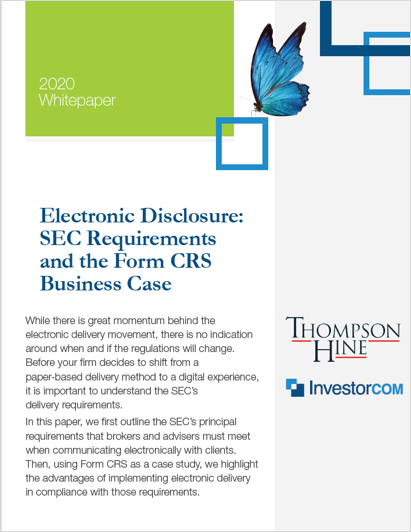
Before your firm decides to shift client communications from a paper-based delivery method to a digital experience, it's important to understand the Securities and Exchange Commission's (SEC) guidance on the use of electronic media.
In this white paper, Thompson Hine LLP outlines the SEC's principal requirements that brokers and advisers must meet when communicating electronically with clients.
Then, using Form CRS as a case study, they highlight the advantages of implementing electronic delivery in compliance with those regulations.
Proper notice is required when sending information electronically. But what does it mean to say that notice is “proper”?
You must provide clients with adequate access to electronic communications - similar to what is provided through traditional mail.
Once you are satisfied that your proposed method of electronic delivery provides timely and adequate notice, are you ready to hit “send”? Not quite yet.
Recordkeeping rules permit advisers and brokers to store records electronically. But are your electronic storage systems designed in accordance with the rules’ requirements?